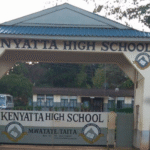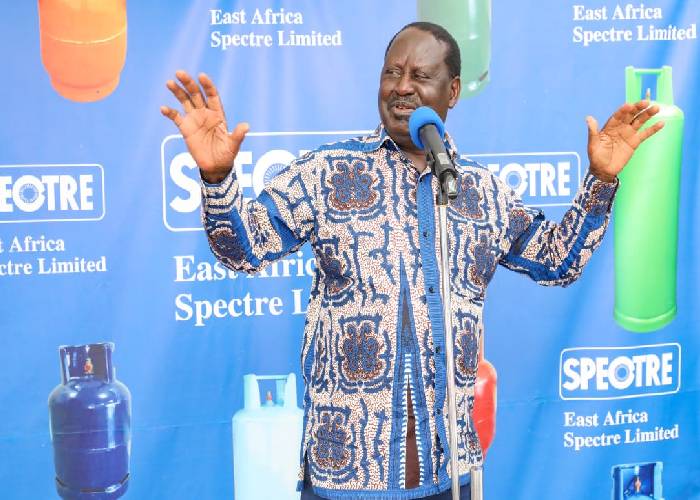Raila Odinga’s influence stretched far beyond politics and into the world of business, where he built an empire worth over KSh 2 billion.
His story was one of determination, intellect, and hard work, showing that leadership could go hand in hand with entrepreneurship.
From the time he started as a lecturer at the University of Nairobi, Raila combined his technical background and business instincts to create opportunities that shaped both his personal life and the national economy.
What began as a small venture later grew into a network of companies and properties that would become some of Kenya’s most notable investments.
His business journey took off with East Africa Spectre, a company that started small but grew into a key player in the energy industry. Raila founded it in 1971 when he saw a chance to fill a gap in the local manufacturing sector.
With limited resources and earning just KSh 2,000 per month, he made a bold decision to sell his car to raise KSh 12,000 and buy equipment left behind by Indian technicians expelled from Uganda.
That decision marked the beginning of his rise as one of Kenya’s most visionary entrepreneurs. Over the years, East Africa Spectre evolved from producing steel doors and windows to manufacturing LPG gas cylinders, helping many households access clean energy.
Raila’s ventures expanded to include Be Energy, through which his family maintained a strong presence in the petroleum sector. The company, partly owned by Pan African Petroleum, had his children Rosemary, Winnie, and Raila Junior actively participating in management. This structure showed his commitment to passing down business knowledge and ensuring the family remained united in its ventures.
Kango Enterprises, jointly owned with his wife Ida, served as the holding company, reflecting how deeply family values were tied to his professional life.
Beyond industries, Raila also made a mark in real estate, owning grand residences that represented different phases of his life. His home in Kisumu’s Riat Hills became a landmark, offering scenic views of Lake Victoria and featuring luxurious amenities such as conference rooms, Jacuzzis, and even a helipad.
It was often referred to as “Raila’s State House,” a symbol of his enduring dream for national leadership and unity.
In Nairobi, he owned homes in Karen and Runda, with his Karen residence, valued at around KSh 300 million, hosting key meetings and visiting dignitaries.
His Nyali mansion in Mombasa, painted in Egyptian blue and white, provided the Odinga family with a peaceful retreat by the coast.
At his Opoda Farm in Bondo, Raila maintained a strong connection to his roots. The farm was more than just land it was a meeting point for family, community, and politics. It reflected his simplicity despite the wealth he amassed, as he often interacted with locals and hosted gatherings that brought people together.
His approach to leadership and business emphasized inclusion, showing how one could remain grounded while achieving great success.
Raila’s wealth also extended to personal luxuries that reflected his status, including a fleet of top-range vehicles and a private helicopter for national campaigns and regional tours. Yet, those who knew him often described him as modest and approachable, someone who valued purpose over showmanship.
He reinvested much of his income into businesses that supported local communities and gave Kenyans a chance to work and grow.
The empire he built stands as part of his broader legacy one that blends politics, business, and service to the nation. His investments created jobs, fueled innovation, and encouraged responsible wealth creation.
Even after his passing, the structures he established continue to empower others. Raila Odinga’s life was a reminder that leadership can inspire progress not only through governance but also through economic empowerment and vision.
His name will remain synonymous with resilience, industry, and a lifelong dedication to building Kenya’s future.





















Add Comment